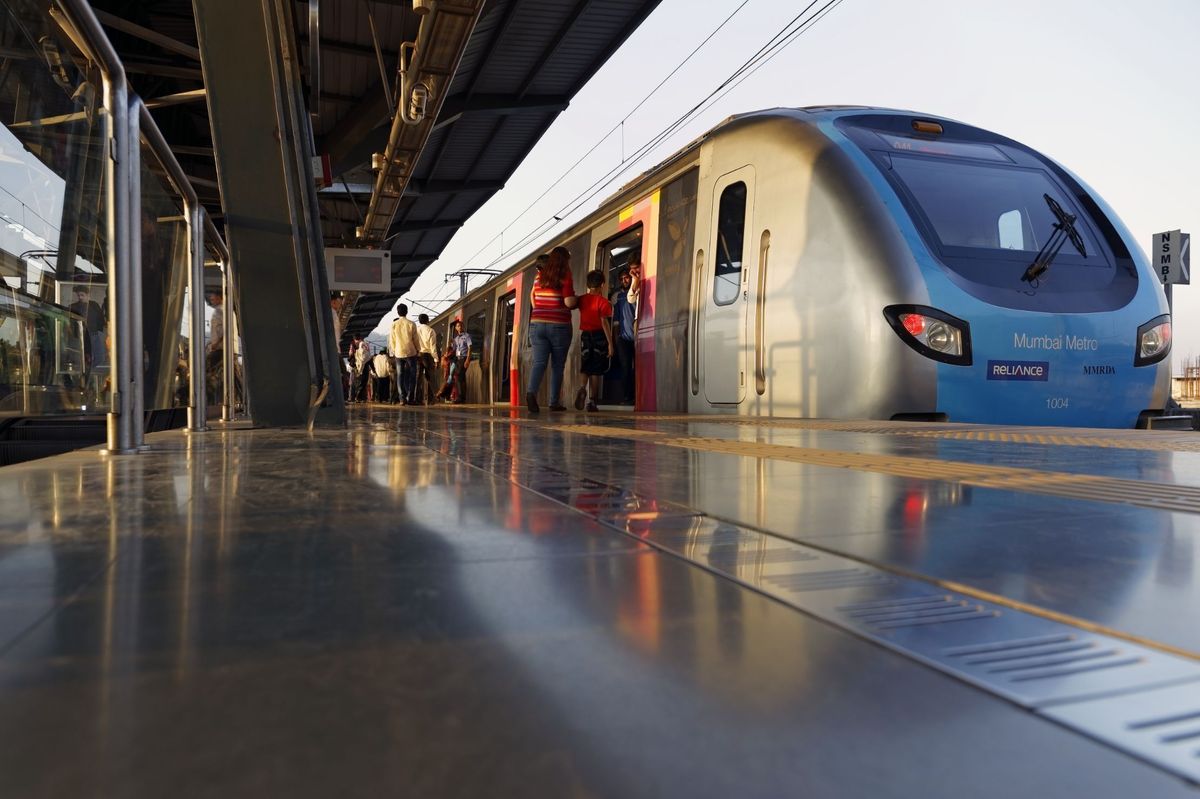Mumbai’s ambitious journey toward a sustainable and seamless public transport system is set to receive a significant push, with Phase 2A of Metro Line 3 — the fully underground Aqua Line — inching closer to operational status.
The corridor connecting Bandra-Kurla Complex (BKC) to Acharya Atre Chowk in Worli is on the cusp of receiving final safety clearance and is expected to be commissioned in the coming days. Officials from Mumbai Metro Rail Corporation Ltd (MMRCL) have confirmed that the Commissioner of Metro Rail Safety (CMRS) is currently reviewing the route, and the go-ahead is expected imminently. This marks a pivotal moment for Mumbai’s evolving mass transit grid, as the city inches toward achieving a zero-carbon and more equitable urban mobility network.
Phase 2A forms the southern stretch of the Metro Line 3 project, complementing the Phase 1 segment — a 12.44-km route from Aarey to BKC — which was inaugurated earlier this year. The Phase 1 segment has already demonstrated its transformative potential by slashing commute times between Aarey and BKC from over an hour to just 30 minutes, thereby encouraging thousands to shift from private vehicles to public transport. Metro Line 3 in its entirety is envisioned as a 33.5-km fully underground corridor traversing some of Mumbai’s densest and most commercially active zones. Once fully commissioned, the Aqua Line is expected to serve as the lifeline for nearly one crore commuters each day. The corridor links six major business districts, thirty office zones, a dozen academic institutions, eleven hospitals, ten key transit hubs, and twenty-five cultural and recreational landmarks, making it a game-changer for intra-city mobility.
The soon-to-be-commissioned Phase 2A from BKC to Worli is particularly significant, as it connects two of the most vital economic nodes in Mumbai. BKC, a major financial district, and Worli, a rapidly densifying residential-commercial zone, have long suffered from road congestion. The underground metro offers a climate-conscious alternative to road-based commuting, reducing vehicular emissions and easing surface traffic flow. Experts in sustainable urban transport have repeatedly highlighted the Aqua Line’s role in reducing Mumbai’s carbon footprint. With each new phase, the city moves a step closer to an integrated, multimodal, and inclusive transport network that aligns with global sustainability goals. The corridor’s design — with high-capacity trains, disabled-friendly access, and efficient last-mile connectivity — sets new benchmarks in equity and accessibility in urban infrastructure.
According to MMRCL, the operational stretch currently comprises 10 stations with 96 daily trips, running between 6:30 am and 10:30 pm. Fares range from ₹10 to ₹50, designed to remain affordable for daily wage earners, office-goers, and students alike. In the run-up to the launch of Phase 2A, metro services on Line 3 are temporarily operating on revised schedules due to ongoing technical integrations. Services between Aarey and BKC will run from 6:30 am to 9:30 pm on April 25 and from 7:30 am to 9:30 pm on April 26, according to official social media communications. Commuters have been urged to plan their travel in advance to avoid disruption.
There is growing anticipation that the launch of the BKC-Worli stretch may coincide with Maharashtra Day on May 1 or a potential high-profile visit to the city the following day. While an official launch date has not been announced, preparations are reportedly in full swing for a timely unveiling. Once operational, the full Metro Line 3 corridor is expected to dramatically shift how Mumbaikars navigate their daily routines. Unlike elevated metro lines that often face spatial and aesthetic resistance in densely populated urban centres, the fully underground Aqua Line offers an unobtrusive alternative while preserving the city’s built heritage and natural topography.
Urban mobility planners have lauded the project for its long-term vision and adherence to sustainable design principles. From energy-efficient station systems to regenerative braking in trains and solar energy integrations at depots, Metro Line 3 is not just an infrastructure project — it is a template for future urban transport projects across Indian cities aspiring for net-zero carbon mobility. However, the journey has not been without its challenges. The project has seen delays and cost escalations due to complex tunnelling requirements and environmental considerations. Yet, city officials remain confident that the benefits of reduced congestion, improved air quality, and equitable access far outweigh the hurdles encountered along the way.
As Mumbai prepares to unveil the next chapter in its urban transport evolution, the broader takeaway is clear — sustainable mobility is no longer an option but a necessity. With the BKC-Worli Metro link nearing completion, the city takes a decisive stride toward becoming not just a global financial hub but also a benchmark in inclusive and climate-resilient infrastructure.
Also Read : https://urbanacres.in/indian-railways-inspects-tunnels-bridges-after-kashmir-attack/


